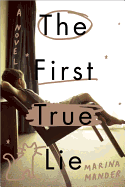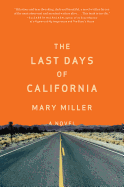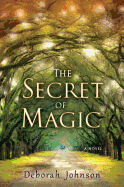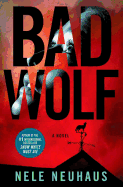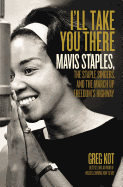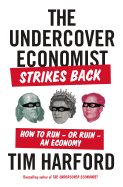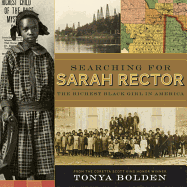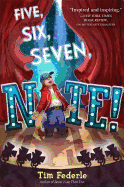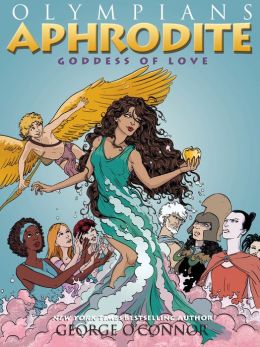 Nele Neuhaus is an example of how persistence pays off. Determined since childhood to be a writer, the German crime novelist started out self-publishing her books, handling everything from cover design to marketing, while holding down a full-time job at her husband's meat factory.
Nele Neuhaus is an example of how persistence pays off. Determined since childhood to be a writer, the German crime novelist started out self-publishing her books, handling everything from cover design to marketing, while holding down a full-time job at her husband's meat factory.
Her novels gained the attention of the Berlin publisher Ullstein, which offered her a contract. Neuhaus achieved international success, and is now published in 15 countries. Snow White Must Die was already a smash hit overseas when it was published in the U.S. last year. Neuhaus now follows it up with Bad Wolf (see review below).
You wrote your first book at age five, albeit phonetically. Where did your desire to write come from, especially at such an early age? Do you still have that yellow typewriter your parents bought you?
Following in my older sister's and my parents' footsteps, I discovered the magic of the written word early on. It started with me reading existing stories, which I then developed further. I guess these days you'd call it writing fan fiction. Pretty soon, I began making up my own characters and plots. I loved traveling to far-off places in my imagination. Africa, the U.S., Southeast Asia, France, Ireland--that's where my stories took place, although I had never been to most of these countries. But those imaginary journeys taught me early on how important and wonderful research is.
The yellow typewriter might still be in my parents' attic. Every time I visit them, I am determined to go find it, but usually forget. Next time I'll check for sure!
What's the appeal of the Grimm fairy tales for you? Why did you decide to allude to them in your thrillers?
My siblings and I read fairy tale books, and loved listening to audio versions on LP records on rainy days. These tales are a cultural heritage--creepy and suspenseful, but always with a happy ending for the good guys.
I think that all fairy tales in some ways are precursors to crime novels. Because they are often so cruel, they aren't really appropriate for children, and yet they contributed to shaping our view of the world: good and evil exist, arrogance and hubris will be punished, humility and consideration will be rewarded.
I happened upon the fairy-tale titles for my books by accident. Originally, Snow White Must Die was supposed to have a different title, but that one would have been too much of a giveaway of the plot. One of the characters is called Stefanie Schneeberger (the German word for snow is schnee), and one afternoon I suddenly had a flash of inspiration: I nicknamed Stefanie Snow White, and the title followed from that. My publisher was thrilled. Looking back, I am convinced the title had a lot to do with the success of this book, which has sold more than one million copies in Germany alone. It made readers curious. Everybody knows Snow White, but why must she die?
I picked the title for Bad Wolf in a similarly intuitive way. What are little girls afraid of? The big bad wolf. I can't think of any title that would have been a better fit for the horrible subject in that book.
You self-published at the start of your career and had the final say on everything. After Ullstein offered you a contract, how did it feel to cede control to others? What are the biggest things you learned in making that transition.
It was a great relief for me. I had written three books, had them printed, marketed them, shipped or delivered them, and even billed my customers. The offer from Ullstein came at exactly the point at which I was figuring out how to continue, since I simply didn't have the time to write a new book.
I have a lot of respect for the work and achievements of publishing houses. I am fully involved in the process, starting with the interior layouts, title consultation, cover design, flap copy, all the way to marketing strategies and distribution.
My publisher takes care of all of those things that I don't have the time to do, and I am very, very grateful that I can devote myself to my writing. The most important thing for me is the collaboration with my wonderful editor at Ullstein. I used to do the editorial work myself, and my sister and mother had to read and proofread. Now I have Marion. We are currently working on our eighth book, and we make a great team.
When and how did you know it was safe to quit your day job at the factory and write full-time?
If my ex-husband had had his way, I would have quit writing and continued working in his factory. He was a confirmed nonreader and had no understanding at all for my desire to write. He thought it was cute when I self-published my first books, but when the offer from Ullstein and the subsequent success came, he was a bit freaked out. My books were on the bestseller lists and I was touring all over Germany for readings, but I was still cleaning the office every morning and serving customers in the afternoon. If I had an event in Hamburg, Bremen or Munich, I would drive home that same evening to be at work at 6 a.m. in the meat factory. Finally, my body shut down; it was just too much. My ex-husband had even less sympathy. We fought more and more frequently, and after 23 years together, I made the choice to leave, with just my dog, my computer, a few clothes and books. My health had deteriorated from the stress, and in 2012, while I was writing Bad Wolf, I found myself in the hospital with an aortic aneurysm and a defective cardiac valve. At 44, I was having heart surgery and got a new valve. I decided at that moment that if I survived, I would risk losing the security I had with my husband. I have not regretted this step one second.
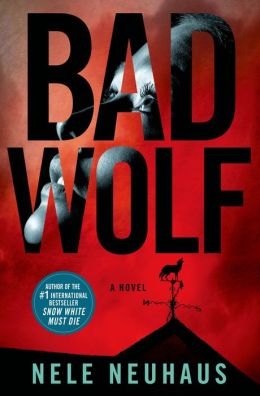 You write about some dark subject matters, especially in Bad Wolf. How has the feedback from your readers and reviewers differed from country to country?
You write about some dark subject matters, especially in Bad Wolf. How has the feedback from your readers and reviewers differed from country to country?
The feedback I got from Bad Wolf has been overwhelming. I received many, many letters, e-mails and posts from people who had been affected greatly and thanked me for addressing the horrific subject of child abuse in my book. There were also women who told me they were unable to read the book since they had small children and couldn't bear the idea of such things going on.
The research I did was absolutely harrowing. I am the patron of the Young Women's Shelter in Frankfurt, where abused girls and young women can find refuge and have access to therapy. It is unbelievable that this misery exists in Germany; it goes on more frequently than we might think. In spite of this, the girls don't have a lot of support. When I was touring for Bad Wolf all over Germany, I passed out flyers for the women's shelter, in hopes of getting people to sponsor young women for 15 euros a month, as a sort of guardian angel. I only found 53 takers. I do hope that Bad Wolf is not only seen as crime fiction and entertainment, but will also raise awareness among readers about what might be going on around them.
It has only been published in South Korea so far [other than Germany]. A couple of days ago, I had some early feedback from a Korean reader who was enthusiastic. Unfortunately, the subject of child abuse is not limited to one country.
You've said you used to be hurt by negative reviews but now accept them as part of the process. What helped you toward that realization?
I am always hurt when my books are reviewed negatively if the review is without depth and only aims to insult. I absolutely welcome constructive criticism. I find it very helpful in my continued growth as a writer.
Generally, though, my skin has gotten thicker. Most of the negative reviews (and there are comparatively few) are based on pure envy. Envying someone else's success is an unfortunate quality that seems rather common in Germany, and I find it horrible. I like to support young authors, give pointers, and open doors in the publishing world for them. I believe there really isn't any competition among authors, since readers are welcome to read all the other books as well. Also, I am fully aware that not everybody likes everything. Some people like chocolate, others prefer fruit.
My books won't win prizes in Germany, but I don't have a problem with that. My prize is the enthusiasm of my readers. My aim is to entertain, give readers a fantasy world they can escape to for a few hours after work, on the weekend or on vacation. All the letters, e-mails, posts, and direct comments I have received from readers have convinced me I have succeeded in doing so.
There's a famous George Bernard Shaw quote that says, "The Germans lack talent for two things: revolution and crime novels." If he were sitting across from you now, what would you say to him?
I'd tell him this is no longer the case. Germans achieved the reunification of their country in October 1989 by means of a peaceful revolution. And there are very many fantastic crime writers in Germany now--for example, Friedrich Ani, Jan Costin Wagner, Ingrid Noll and Sebastian Fitzek. One of the reasons it is such a challenge for these books to succeed internationally is that many German crime novels are regionally focused. Another issue is that there aren't enough editors in international publishing houses who read German.
But German authors are finally being noticed internationally. I had the opportunity to participate in a panel discussion at the international crime festival in Harrogate, England, in 2013. The panel was moderated by Barry Forshaw, the well-known British expert on crime fiction, and its subject was "Is German the Next Big Thing?" It remains to be seen if German crime fiction can prevail against the strong competition from the U.K., U.S. and Scandinavia, but I really would like to disagree vehemently with George Bernard Shaw and present him with a copy of Bad Wolf. --Elyse Dinh-McCrillis, crime-fiction editor, The Edit Ninja
Nele Neuhaus: Writing Her Own Happy Endings
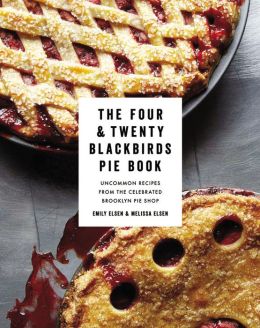




 You write about some dark subject matters, especially in Bad Wolf. How has the feedback from your readers and reviewers differed from country to country?
You write about some dark subject matters, especially in Bad Wolf. How has the feedback from your readers and reviewers differed from country to country? 
